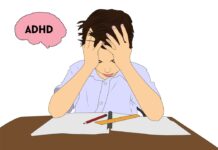Healing From Transgenerational Trauma: My Mum, My Daughter, & Me
Emotional trauma is the type of wound that, if not processed and integrated, can become a void that expands to swallow not just the traumatized person but also their children and grandchildren.
Delta ‘Weaponized’ Mental Health Rules Against a Pilot. She Fought Back.
From The Seattle Times: After a first officer raised some safety concerns, Delta management removed her from service, alleging mental health issues. She fought a legal battle that resulted Friday in a scathing ruling against the company.
Why Detox Facilities and Psych Wards Are Not the Place to Come Off Psychiatric...
In online communities, patients learn their strange symptoms may be due to the medications they are taking, and are offered solutions that provide hope.
Antidepressant Tapering Platform ‘Outro’ Launches in Canada Ahead of World Tapering Day
From Business Wire: "We are providing a science-based and holistic way to help people safely stop antidepressants while minimizing withdrawal symptoms and risk of relapsing," said Outro co-founder Mark Horowitz.
Who Gets Believed: Abuse in Mental Health Services
From NSUN: We need to have a conversation about power, the systematic silencing of survivor testimony, and the weaponisation of mental ill-health, trauma, and distress to discredit and coerce people.
The “S” Word: How the Culture of Fear Has Failed Youth in Crises
I learned at a young age that my suicidal thoughts and feelings would be met with panic and punishment from adults.
When Psychotherapists Are Less Healthy Than Their Clients
From Daniel Mackler: It is common for therapy clients to be healthier than their therapists, for two reasons: clients are often humble whereas therapists often are not; and clients are often actively grappling with their feelings whereas many therapists are stuck in dissociation from theirs.
Arizona Farm Gives Refuge From Pain, for Man and Beast Alike
From AP News: There is no talk at Selah Carefarm of ending the pain of loss, just of building the emotional muscle to handle it.
How Big Pharma Monetized Depression
From UnHerd: We have organized our thinking, and care, around a narrative of medical progress that isn’t to be found in the scientific literature.
From the Health Minister Down, Nobody Is Seriously Interested in the Quality Control of...
The ultimate metric is whether psychological treatment makes a real-world difference to client’s lives. But the data cannot answer this key question.
A Review of Alice Miller’s ‘The Body Never Lies: The Lingering Effects of Cruel...
From alice-miller.com/Stephen Khamsi, PhD: For thousands of years, the Fourth Commandment - along with our personal denial of early maltreatment - has led us toward repression, emotional detachment, illness and suicide.
The Problem of High Functioning Anxiety
We have accepted that the busier we keep ourselves, the happier we can expect our lives to be. "Acceptable behavior" is defined by increased productivity across all aspects of life.
Antidepressant Withdrawal Linked to Suicide Attempt in Case Study
Researchers suggest that antidepressant withdrawal can be a possible precipitant of suicide.
ADHD Diagnosis Leads to Worse Quality of Life, Increased Self-Harm in Kids
When comparing kids with the same symptoms who were either diagnosed with ADHD or not, those who received the diagnosis had worse outcomes.
‘Psychology Is’ Podcast: The Scientific Emptiness of Psychiatry, With Dr. David Cohen
From Psychology Is: The field is comprised of psychiatrists who primarily act as drug prescribers and justify their practices on the basis of "silly theories that are continually refuted," said the UCLA professor.
A Neuroscientist Evaluates the Standard Biological Model of Depression
Current evidence does not support a biological hypothesis of depression. It is far better predicted by levels of childhood trauma, life stress, and lack of social supports.
Failing to Report Child Sex Abuse Should Be Made Illegal: Major British Inquiry
From the BBC: "We heard time and time again how allegations of abuse were ignored, victims were blamed and institutions prioritised their reputations over the protection of children," said inquiry chairwoman Prof. Alexis Jay.
Re-humanising Mental Health Systems: A Discussion with Jaakko Seikkula on the Open Dialogue Approach
Clinical psychologist, researcher, and professor Jaakko Seikkula, along with Markku Sutela, created the Open Dialogue approach to acute crises in Finland.
Even With Troubled Histories, Psych Hospitals Face Few Sanctions
From The Atlanta Journal-Constitution: Parents may never know that the facility treating their child has had serious patient care issues.
Exploring the Fault Lines in Mental Health Discourse: An Interview with Psychologist Justin Karter
Justin Karter discusses his journey to Mad in America, competing models of mental health, and how we navigate these stories in psychotherapy.
Now Doctors Want to Screen EVERY American Child Over Age of Eight for Anxiety
From the Daily Mail: Experts said the new recommendations could spur a surge in the use of anti-anxiety medications, which, some fear, are already at the center of a budding addiction crisis in the US.
A New-Old Way of Coping with Grief
"How to Grieve" is a Renaissance recreation of a lost text from ancient Rome by Cicero, and it’s meant for a wide audience. It's packed with talk-therapy strategies for coping with grief.
Can You Punish a Child’s Mental Health Problems Away?
From The New York Times: Future generations will look back on the tactics used in the troubled teen industry and ask: How did we allow these practices to pass off as mental health treatment for so long?
The Spravato Controversy: A Row Over the Drug’s Efficacy Compels a Reassessment of...
The UK's drug regulator rejected Janssen's esketamine nasal spray. Why did the US FDA approve it?
Jim Flannery: Sorry It’s Not Funny – Comedy, Hip-Hop and Activism
Born and raised in suburban Weathersfield, Connecticut, Jim Flannery was committed at four mental hospitals across the United States. There he received the best care available in the modern world…torture.

































